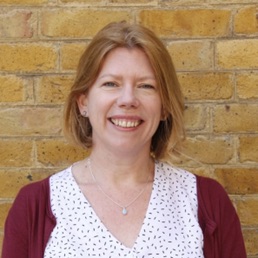
Compiled by Miriam Bernard
Dr. Rhonda Booth is an Associate Professor (teaching) at University College London. Dr. Booth earned her Ph.D. in Psychology from King’s College London, UK, and received her MSc in Psychology and PG Diploma in Applied Psychology (Specific Learning Disabilities) from University of Auckland, NZ. She runs the MSc/PG Diploma in Applied and Clinical Pediatric Neuropsychology at the Cognitive Neuroscience and Neuropsychiatry Section, Developmental Neurosciences Programme, UCL Great Ormond Street Institute of Child Health.
.
Dr. Booth is based in London, UK and is the Research Consultant for Corpal, the UK family support group for individual and families impacted by DCC. In her work, Rhonda is attempting to answer the questions: Are the social and cognitive strengths and challenges observed in individuals with DCC similar to those found in individuals with autism spectrum disorder (ASD)? And also: Could interventions that are effective for individuals with ASD also be beneficial for those with DCC?
.
When asked how her research has impacted persons with DCC and their families, Dr. Booth replies, “This research will impact DCC persons and their families by providing a deeper understanding of the condition, particularly in terms of its effects on social and cognitive development. It has helped to identify the more subtle social challenges that may emerge, particularly during adolescence, when social interactions become more complex, conversations move faster, and expectations rise compared to earlier years. Furthermore, this research has led to greater awareness that conditions such as ASD, ADHD, and Developmental Coordination Disorder (dyspraxia) can co-occur with DCC, and that diagnostic overshadowing—where additional issues are overlooked or not acknowledged—becomes less common.”
.
Most recently, Dr. Booth has started a collaboration with fetal MRI experts in London who have collected detailed prenatal brain images from cases where DCC was detected before birth. By following up on these children, she aims to identify early neurological markers in the prenatal scans that can predict future outcomes in terms of developmental milestones, cognition, and behaviour. This research has the potential to enhance prognostic accuracy for families receiving a prenatal DCC diagnosis, enabling more informed counselling and promoting early, targeted support for affected individuals.
.
We’re so grateful to Dr. Booth for her contributions to persons and families of persons with DCCs, and her work with Corpal. To learn more about Dr. Rhonda Booth’s research, click HERE.

